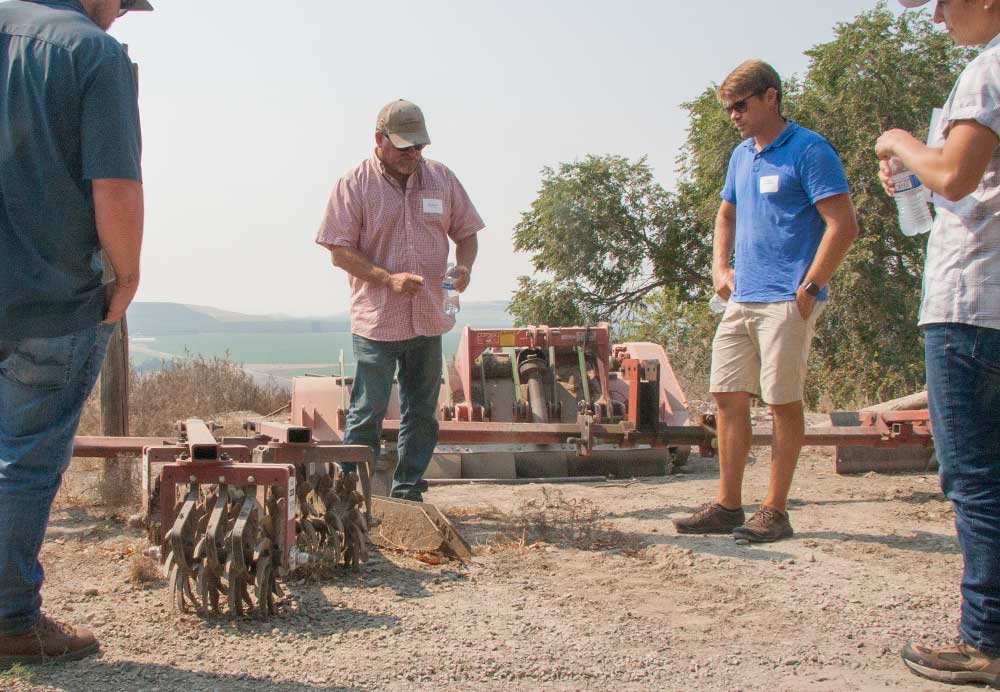
Grower Rick Orozco describes the benefits of regular cultivation with a wonder weeder to attendees on a WSU NextGen Grower field day on transitioning to organic production at his HiPoint Orchards near Pasco, Washington on August 3, 2017. (Kate Prengaman/Good Fruit Grower)
Transitioning tree fruit to organic production was the focus of a Washington State University NextGen Growers tour in July at High Point Orchards in Pasco, Washington. Owner Rick Orozco grows organic peaches, apricots, pears, nectarines and apples, along with conventional apples and cherries.
He told the tour attendees about the importance of encouraging beneficial insects, using a mechanical weeder regularly and practicing good orchard sanitation: removing mummies that could become a source of disease like brown rot in stone fruit.
Tour attendees had lots of questions about his nutrition programs, not surprising because building up soil-available nitrogen with slow-release products like compost or manure is very different that applying a conventional fertilizer.
Just 15 percent of the nitrogen in the compost may be available for the trees the first season it’s applied, said WSU extension educator Tianna DuPont. Building it up over time leads to very productive soils, but the transition can be challenging for trees and growers.
“It’s a challenge to make sure there is enough nitrogen so you don’t slow the vigor,” in the first years of organic practice, Orozco said. But once you build up the nitrogen in the soil over several years, the trees do quite well. In mature stone fruit orchards, he puts on 1 ton of chicken manure per acre, which equals about 50 pounds of nitrogen.
Orozco also described his experiments with a cover crop of winter peas, which can provide a significant nitrogen source when mulched and tilled into the soil. “That worked really well, but it’s challenging,” he said.
The peas need water in the off season when he’s trying to slow down the trees, complicating his management, so he switched to compost, Orozco said. He encouraged ambitious young growers to try it, however.
“Once your system gets into balance, you can start seeing a lot of benefits,” said Scott Rice, manager of the organic certification program for the Washington State Department of Agriculture.
He recommended that growers new to organic production enroll in the state’s transitional program for the 36 months required from the last pesticide application to the first opportunity to sell fruit as organic. It’s optional, but certifiers will visit farms and work with growers to make sure everything is in compliance.
“It helps avoid surprises,” Rice said. At inspections, certifiers will check records or inputs and look for issues around block edges and other areas of concern. “When in doubt, call your certifier.”
—by Kate Prengaman






Looks like a great way to pulverize the soil and cause erosion.
Mr. Popoff, this isn’t a large cultivator, just a tractor driven version of a hand rototiller basically. It’s commonly used for striking down weeds next to the trees without damaging subsurface roots. See this image here: https://goodfruit.com/how-to-manage-weeds-and-nitrogen-in-organic-orchards/